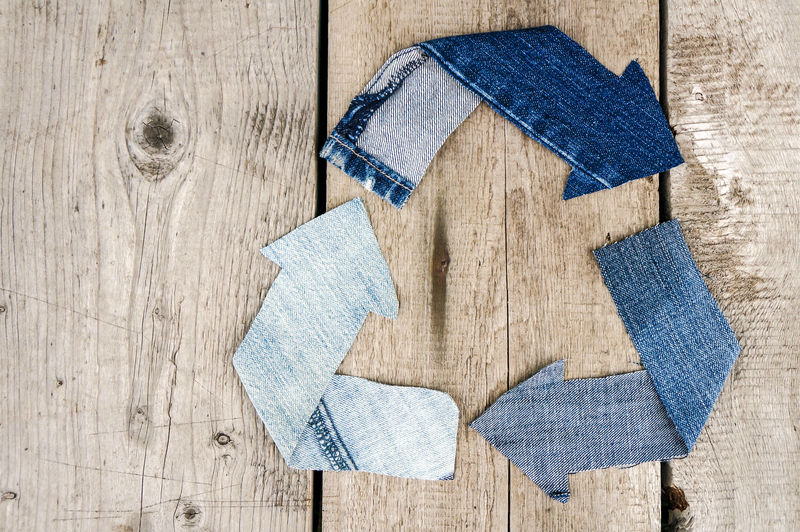Money-Wise Methods for Managing Bulky Waste Items
Dealing with bulky waste can pose a real challenge, especially when you want to do it responsibly and without overspending. Whether you've just completed a renovation, bought new furniture, or are tackling a much-needed declutter, bulky waste items--such as sofas, mattresses, old appliances, and large yard debris--can quickly become an eyesore and a financial burden. Fortunately, there are cost-effective ways to handle these sizeable discards. In this comprehensive guide, we cover a variety of money-wise methods for managing bulky waste items that are eco-friendly, accessible, and practical for both homeowners and businesses.

Understanding Bulky Waste: What Qualifies?
Before diving into the best practices for bulky waste management, it's worth clarifying what counts as "bulky waste." Generally, bulky waste items are objects too large for regular curbside trash collection. Common examples include:
- Furniture (e.g., sofas, recliners, tables, bed frames)
- Household appliances (e.g., refrigerators, washing machines, stoves)
- Large electronics (e.g., TVs, old desktop monitors)
- Mattresses and box springs
- Carpets and rugs
- Yard debris (e.g., tree limbs, brush, large garden waste)
Each community defines (and collects) bulky waste differently, so always check local regulations before disposal.
Why Proper Bulky Waste Disposal Matters
Improper management of large items doesn't just take up space--it can leach toxins, create safety hazards, and even incur fines. Furthermore, dumping bulky waste haphazardly can harm the environment and reduce neighborhood appeal. Therefore, finding affordable, responsible ways to dispose of these items should be a priority for everyone.
Cost-Effective Methods for Bulky Waste Disposal
1. Take Advantage of Municipal Bulky Waste Pickup
Many cities and towns offer bulky waste collection services either for free or for a nominal fee. These events are usually scheduled periodically--once a month, a few times a year, or upon request. Here's why it's a top money-wise method:
- Budget-friendly: Municipal services are often subsidized by city budgets or included in your regular waste fees.
- Convenient: Items are picked up right from the curb; you simply need to schedule or follow the collection calendar.
- Eco-friendly: Many municipalities direct suitable materials toward recycling or donation programs.
Contact your local public works or waste management office for specific guidelines, schedules, and any limits on volume or type.
2. Utilize Community Recycling Centers and Drop-Off Sites
Recycling centers are key allies in the fight against landfill overflow. Many accept large waste items at little or no cost. Typical drop-off items include:
- Scrap metal (appliances, bed frames, pipes)
- Electronics (TVs, computers, small gadgets)
- Furniture (when recyclable or made of wood/metal)
- Yard waste (often chipped for mulch or composting)
Some centers charge by weight or volume, but with research, you can find the lowest-cost facilities in your area. Remember to check what each center accepts, as restrictions often apply.
3. Sell or Donate Bulky Items in Usable Condition
One person's trash is another's treasure! If your items are still functional, earn some cash or goodwill by selling or donating them. Here's how:
- Online Marketplaces: Use platforms like Facebook Marketplace, Craigslist, OfferUp, or eBay for larger items. Even old materials can have value to upcyclers or DIY enthusiasts.
- Charity Shops or Thrift Stores: Organizations like Habitat for Humanity ReStores, Goodwill, or The Salvation Army often accept and resell large furniture, appliances, and more.
- Community Giveaways: Websites such as Freecycle.org allow you to give items away for free and keep them out of landfills.
Always confirm that the organization accepts your specific item: some do not take mattresses or large electronics due to hygiene or disposal regulations.
4. Host a Neighborhood Bulk Trash Day
If your entire community is facing a cleanup, why not coordinate a neighborhood-wide effort? Pooling resources can make bulky waste removal even more economical. Here's how to organize it:
- Bulk Hauling Discounts: Contact local junk removal or dumpster rental companies for group rates.
- Share Dumpsters: Renting a larger dumpster as a group slices costs for everyone.
- Collaborative Recycling: Assign volunteers to sort recyclables, resellables, and true trash items.
This approach not only saves money but also fosters community spirit and environmental responsibility.
5. DIY Bulky Waste Transport
If you have access to a pickup truck or trailer, you can personally transport your large items to a landfill, transfer station, or recycling center. While there may still be a fee (typically by weight or item), you'll save significantly compared to hiring full-service removal. Here are some money-wise tips for this method:
- Borrow or rent a vehicle only for a few hours to minimize costs.
- Plan multiple drop-offs to maximize your haul and avoid multiple trips.
- Enlist friends or neighbors to share the vehicle and fees.
- Pre-sort your load: scrap metal, recyclables, and true trash.
Be sure to secure your load properly, and check local regulations about vehicle size and what items are accepted.
Creative Options for Bulky Waste Repurposing
Not all bulk waste needs to be trashed. With a bit of creativity, some waste can be turned into valuable assets, keeping disposal costs low and reducing landfill waste.
1. Upcycling and DIY Projects
Broken furniture, old doors, or even appliance shells can be upcycled into new functional pieces. Ideas include:
- Turning a headboard into a bench
- Using pallets for gardening projects
- Transforming drawers into wall-mounted shelves
- Making planters from empty washing machine drums
*Search online for DIY guides and upcycling communities for inspiration!*
2. Parts Harvesting
While the item as a whole may be junk, components such as motors, coils, wood planks, or metal pieces are valuable for crafters, builders, and repair shops. Separate and save these parts before disposing of the rest.
3. Yard Waste Composting
Bulky yard debris, including tree limbs and brush, can be chipped and used as mulch or compost for gardens. Many cities rent or lend chippers for free or subsidized rates. Alternatively, collaborate with neighbors for large-scale composting projects to pool resources.
Avoiding Common Pitfalls in Bulky Waste Management
Even the best-laid plans can go awry. Here are some tips to avoid unnecessary costs or hassles as you manage bulk waste:
- Don't Dump Illegally: Unauthorized dumping can result in hefty fines and legal issues--always use approved facilities.
- Avoid Overloading: Placing too much debris in your regular bins may result in missed pickups or extra fees.
- Prepare Items Properly: Disassemble items if possible to reduce their footprint or comply with collection rules.
- Watch for Hidden Charges: Some junk haulers or landfills have extra fees for certain waste types, such as electronics or mattresses.
Professional Services: When Are They Worth the Cost?
Sometimes calling a professional bulk waste removal service is the most effective choice. If you lack the time, tools, or help to move large, heavy, or hazardous items, hiring professionals may be your best money-wise method in the long-term.
What to Look For in a Budget Bulk Waste Removal Service
- Transparent Pricing: Choose services that charge by volume, not vague estimates.
- Eco-friendly Commitment: Prefer firms that donate, recycle, and minimize landfill use.
- Licensed and Insured: Make sure the company is properly credentialed to avoid liability issues.
Always compare multiple providers and read online reviews to avoid overpaying.
Summary Table: Money-Wise Bulky Waste Management Methods
| Method | Cost | Benefits |
|---|---|---|
| Municipal Pickup | Free/Low | Convenient, regulated disposal, often recycled |
| Recycling Centers | Low (sometimes free) | Eco-friendly, resource recovery |
| Sell/Donate | Potential profit | Reduces landfill waste, helps others |
| Neighborhood Cleanup | Shared costs | Community building, discounts |
| DIY Transport | Medium (fuel/fees) | Flexible, cost control |
| Repurposing/Upcycling | Minimal/None | Creative, zero waste |
| Professional Removal | Higher (but time saving) | Full-service, safe for heavy/hazardous items |
Bulky Waste in the Circular Economy
A sustainable future depends on more than just affordable disposal--it's about rethinking bulky waste as a resource, not just trash. Whenever possible, aim to incorporate the following circular economy principles into your bulky waste management plan:
- Reduction: Buy only what you need and invest in durable, repairable goods.
- Reuse: Pass items along, upcycle, or donate to extend their lifespans.
- Recycle: Separate materials to feed back into manufacturing.
By prioritizing these steps, you cut costs long-term and help protect the environment.

Frequently Asked Questions: Bulky Waste Money-Wise Methods
Do I need to pay for my local council's bulky waste collection?
It varies--some municipalities offer free annual pickups, while others charge per item or visit. Check your council's website or contact their office for details.
Can I donate mattresses or old appliances?
Many charities won't accept mattresses due to hygiene laws, but some specialty organizations may. Appliances are widely accepted if still working. Always call ahead.
Is renting a dumpster worth it for a large declutter?
If you're disposing of many bulky items, group rates or shared dumpsters with neighbors often offer the best value.
Conclusion: Smart, Affordable, and Responsible Bulky Waste Management
Managing bulky waste doesn't have to cost a fortune--or damage the planet. By leveraging free or low-cost community services, prioritizing reuse and recycling, and getting creative with repurposing, you can tackle large-scale disposal projects with ease. For those moments when professional services are necessary, smart shopping and demand for eco-friendly practices ensure you stay within budget. Money-wise methods for bulky waste management are about making smart, sustainable choices for your household, your wallet, and your world.
Ready to get started? Audit your bulky waste and explore these methods today--the environment (and your savings account) will thank you!
